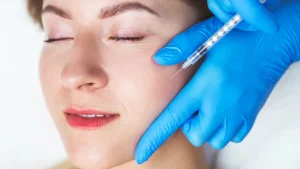Premature ejaculation can be an embarrassing and distressing condition that affects the sex lives of men afflicted with the condition. This sexual disorder is characterized as achieving orgasm and ejaculation before the person wishes it to occur. Premature ejaculation is among the most common male sexual problems and is prevalent worldwide, with most studies reporting incidence rates of 2030%.Many patients (and doctors) believe that there is no effective treatment for premature ejaculation. In fact, there are therapies available that can be successful in helping the patient last longer and improve his sex life.
Therapies for premature ejaculation
It is now recognized that biological and psychological factors play a role in the development of premature ejaculation. Men who have this condition seem to be more sensitive to penile stimulation and have abnormalities with regard to the autonomic reflex pathways that are involved in the ejaculatory process. For these men, using medications or other therapies that desensitize the penis would be an effective method of managing their condition. Treatment methods that are aimed at decreasing penis sensitivity to help delay ejaculation include the use of condoms and topical anesthetics. The latter method has become increasingly common, and topical treatments for premature ejaculation are now available in spray, cream, and ointment formulations.
After ruling out physiological causes (e.g. altered testosterone levels), treatment for premature ejaculation tends to be focused alleviating the psychological sources that this issue stems from. Such treatments include behavioral therapies that help to delay ejaculation. This includes masturbating prior to intercourse, temporarily avoiding intercourse, and shifting to other forms of sexual play, pelvic floor exercises (Kegel exercises), and techniques like the “pause-squeeze” and “stop-start” techniques. Behavioral therapy can be effective for some couples, but it is not suitable for all patients, as these types of treatment require a high commitment level and involves the man’s sexual partner. Thus, these types of therapies are more appropriate as second-line or adjuvant treatments.
Some oral medications are recommended for premature ejaculation treatment. These include serotonergic antidepressants, which can be taken daily as a scheduled treatment regimen or as needed. Serotonergic antidepressants are used for the treatment of this condition because delayed ejaculation is a common side effect of these drugs.
What is Emla cream?
Primarily used as a means of providing anesthesia (pain reduction or numbing), Emla cream is commonly used in many procedures that require topical numbing, including procedures involving needles like the administration of injections, intravenous catheters, or when sampling blood; and dermal procedures like cryotherapy, electrolysis, or laser treatments.
Emla is a eutectic mixture that is comprised of 2.5% prilocaine and 2.5% lidocaine, both of which are anesthetic agents. Lidocaine and prilocaine exist separately as crystalline solids, but when mixed together in equal quantities by weight, they form a liquid that can then be used in preparations without the need for a non-aqueous solvent. This enables higher concentrations of the anesthetic agent to be incorporated into the preparation and application processes. Emla is available by prescription or as an “over-the-counter” product in certain countries.
How does Emla help to delay ejaculation?
As a topical anesthetic, Emla can help to temporarily reduce the sensitivity of the glans penis (penis head) without affecting ejaculation or orgasm. Therefore, this cream can effectively help men with premature ejaculation last longer, especially those whose condition is caused primarily by penile hypersensitivity.
Several clinical studies have demonstrated the efficacy of Emla for the treatment of premature ejaculation. In a pilot study examining the efficacy of Emla cream in 11 men with premature ejaculation found that nine out of the 11 patients rated their performance as “excellent” or “better,” and all 11 partners were satisfied with the treatment results. Another double-blind clinical trial looked at larger group of two groups of 21 men and found a 5.6-fold increase in the intravaginal ejaculatory latency time (IELT); in other words, the men took 5.6 times longer to ejaculate. This study also found high patient satisfaction with treatment, as 11 out of the 16 men who completed the study rated their sexual satisfaction as “great” or “excellent.”
How to use Emla cream to delay ejaculation
Atikeler et al. investigated the optimal method of using Emla cream for the treatment of premature ejaculation in a placebo-controlled trial and found that application of 30 minutes or more resulted in loss of erection due to penile numbness. In the same study, the authors determined the optimal time of application to be 20 minutes.
As the use of Emla cream for the purposes of delaying ejaculation is considered an off-label use, there are no specific guidelines for application. If it is prescribed by a doctor, they would be able to provide further instructions. In general, a small amount of the cream is applied to the penis head and the first 2cm of the penile shaft for 1020 minutes before sex. Before penile penetration is attempted, the cream should be wiped off to reduce the chances of transferring the cream to the partner. To reduce this likelihood further, it is recommended for the man to use a condom, putting it in on after removing the cream and before entering his partner.
What are the side effects of Emla cream for premature ejaculation treatment?
As with any topical numbing cream, leaving EMLA cream on the penis for too long may result in penile hypoesthesia, which is the loss of sensation. This may lead to the loss or erection and decreased sexual pleasure for the man.
Not properly wiping or removing the cream before penetration may result in transvaginal contamination or transference to the genitals of the partner, which can result in anesthesia.
In the Busato study, some of the men reported loss of penile sensation, penile irritation, and one female partner reported decreased vaginal sensitivity.
Conclusion
Using Emla cream to last longer sexually-speaking is an effective and well-tolerated method of delaying ejaculation. Men may prefer this method to other means of delaying ejaculation, as it can be used on an as needed basis and does not have the systemic side-effects that may occur with the use of oral medications.
Make sure to connect with us at MedicaDepot.com to get pricing and more information about Emla and other products including Fillmed.









